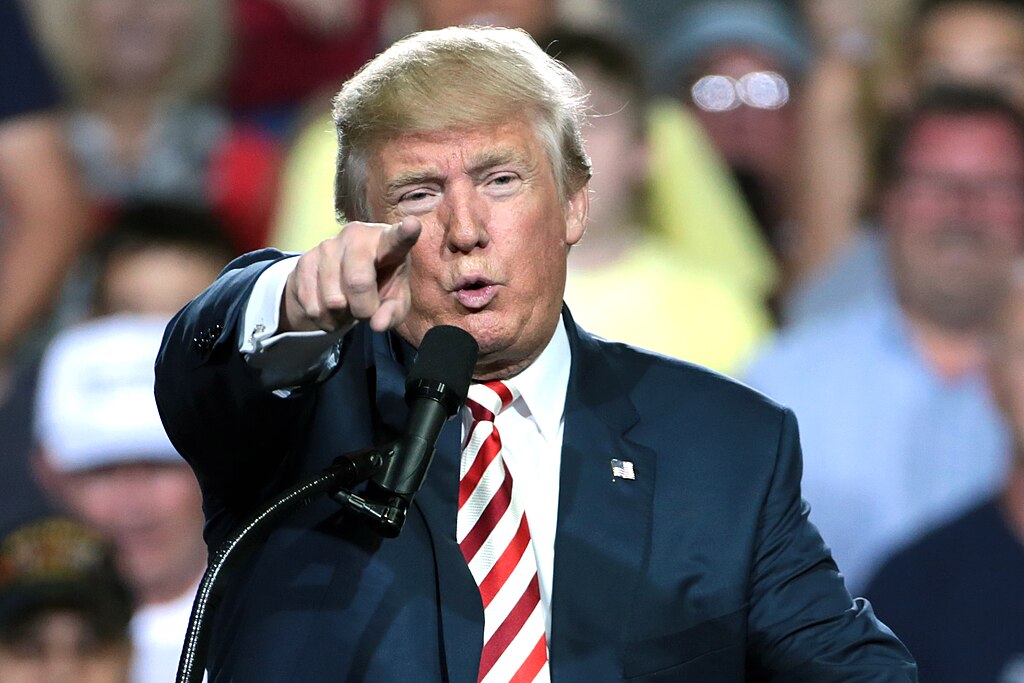President-elect Donald Trump has reignited discussions about acquiring Greenland, the vast Arctic territory governed by Denmark. This renewed interest mirrors his 2019 proposal, which was dismissed by Danish authorities. Trump's latest remarks have sparked a mix of intrigue and skepticism among international observers.
Strategic and Economic Considerations
Greenland's strategic position in the Arctic, coupled with its abundant natural resources, makes it a focal point for geopolitical interests. The island's mineral wealth, including rare earth elements, presents significant economic opportunities. Trump's proposal appears to be driven by both strategic military considerations and the potential for resource exploitation.
In 2019, Trump stated, "Strategically, for the United States, it would be nice." This sentiment underscores the perceived benefits of expanding U.S. influence in the Arctic region. However, Danish Prime Minister Mette Frederiksen responded firmly, asserting that Greenland is not for sale. She emphasized, "Greenland is not Danish. Greenland belongs to Greenland."
International and Domestic Reactions
The reemergence of this proposal has elicited a range of reactions globally. Danish officials have reiterated their stance, dismissing the idea as unrealistic. Greenlandic leaders have also expressed disinterest in altering their political status. Internationally, allies and adversaries alike are closely monitoring the situation, given the potential implications for Arctic geopolitics.
On social media, the topic has ignited vigorous debate. Twitter user @NordicObserver remarked, "Trump's Greenland obsession is baffling. Sovereignty isn't up for grabs." In contrast, @StrategicMindset commented, "Acquiring Greenland could bolster U.S. Arctic strategy. Worth considering." Meanwhile, @EcoWarrior cautioned, "Exploiting Greenland's resources could spell disaster for the environment." Another user, @GlobalDiplomat, noted, "Such proposals strain diplomatic relations with Denmark and the EU." Supportively, @AmericaFirstAdvocate tweeted, "Trump's vision for Greenland shows bold leadership in securing resources." Conversely, @IndigenousVoice emphasized, "Greenland's indigenous population must have a say in their future. External ambitions overlook their rights."
Historical Context and Feasibility
The concept of purchasing Greenland is not unprecedented. In 1946, the U.S. proposed buying the island for $100 million, a proposal that Denmark declined. The strategic importance of Greenland has only increased since then, particularly with the Arctic's evolving geopolitical landscape.
However, modern international norms and the principle of self-determination render such a transaction highly improbable. Greenland's move toward greater autonomy and its distinct cultural identity further complicate any discussions of changing sovereignty.
While President-elect Trump's renewed interest in purchasing Greenland has captured global attention, the practical and diplomatic challenges make such an acquisition unlikely. The proposal serves to highlight the strategic significance of the Arctic region and the complexities inherent in international territorial negotiations.



 U.S.-Iran Nuclear Talks Show Progress but No Breakthrough Amid Rising Military Tensions
U.S.-Iran Nuclear Talks Show Progress but No Breakthrough Amid Rising Military Tensions  Germany and China Reaffirm Open Trade and Strategic Partnership in Landmark Beijing Visit
Germany and China Reaffirm Open Trade and Strategic Partnership in Landmark Beijing Visit  Keir Starmer Faces Crucial By-Election Test in Manchester Amid Tight Three-Way Race
Keir Starmer Faces Crucial By-Election Test in Manchester Amid Tight Three-Way Race  Denver Mayor Orders Police to Protect Protesters, Restricts ICE Access to City Property
Denver Mayor Orders Police to Protect Protesters, Restricts ICE Access to City Property  Maduro Seeks Dismissal of U.S. Drug Trafficking Case, Citing Sanctions Interference
Maduro Seeks Dismissal of U.S. Drug Trafficking Case, Citing Sanctions Interference  Philippines, U.S., and Japan Conduct Joint Naval Drills in South China Sea to Boost Maritime Security
Philippines, U.S., and Japan Conduct Joint Naval Drills in South China Sea to Boost Maritime Security  Dominican Republic Unveils Massive Rare Earth Deposits to Boost High-Tech and Energy Sectors
Dominican Republic Unveils Massive Rare Earth Deposits to Boost High-Tech and Energy Sectors  USITC to Review Impact of Revoking China’s PNTR Status, Potentially Raising Tariffs on Chinese Imports
USITC to Review Impact of Revoking China’s PNTR Status, Potentially Raising Tariffs on Chinese Imports  U.S. Plans 4,500 Monthly Refugee Admissions for White South Africans Amid Policy Debate
U.S. Plans 4,500 Monthly Refugee Admissions for White South Africans Amid Policy Debate  IMF Urges U.S. to Cut Fiscal Deficit to Reduce Trade and Current Account Gaps
IMF Urges U.S. to Cut Fiscal Deficit to Reduce Trade and Current Account Gaps  Argentina Senate Approves Bill to Lower Age of Criminal Responsibility to 14
Argentina Senate Approves Bill to Lower Age of Criminal Responsibility to 14  Top Democrat Accuses DOJ of Withholding FBI Records in Trump-Epstein Investigation
Top Democrat Accuses DOJ of Withholding FBI Records in Trump-Epstein Investigation  UK Government Agrees to Release Documents on Peter Mandelson Appointment Amid Epstein Scandal
UK Government Agrees to Release Documents on Peter Mandelson Appointment Amid Epstein Scandal  NYC Mayor Zohran Mamdani Meets President Trump to Tackle Housing Crisis and ICE Detentions
NYC Mayor Zohran Mamdani Meets President Trump to Tackle Housing Crisis and ICE Detentions  Pentagon to Halt Ivy League Programs for U.S. Military Officers Starting 2026
Pentagon to Halt Ivy League Programs for U.S. Military Officers Starting 2026  ICE Hiring Surge Raises Vetting Concerns Amid Rapid Expansion
ICE Hiring Surge Raises Vetting Concerns Amid Rapid Expansion  Australian PM Calls Alleged Western Australia Terror Plot “Deeply Shocking” After Arrest
Australian PM Calls Alleged Western Australia Terror Plot “Deeply Shocking” After Arrest 



























